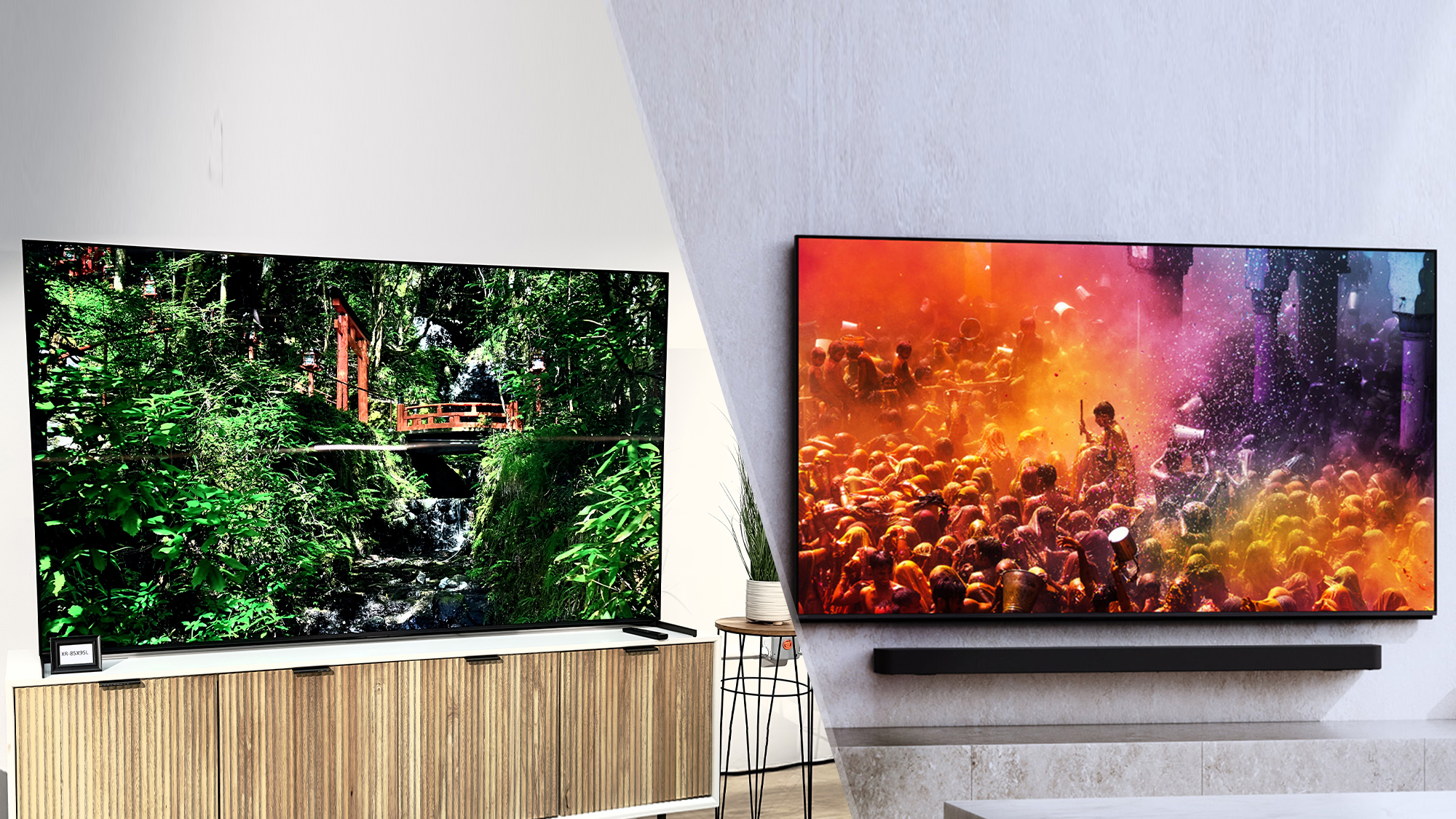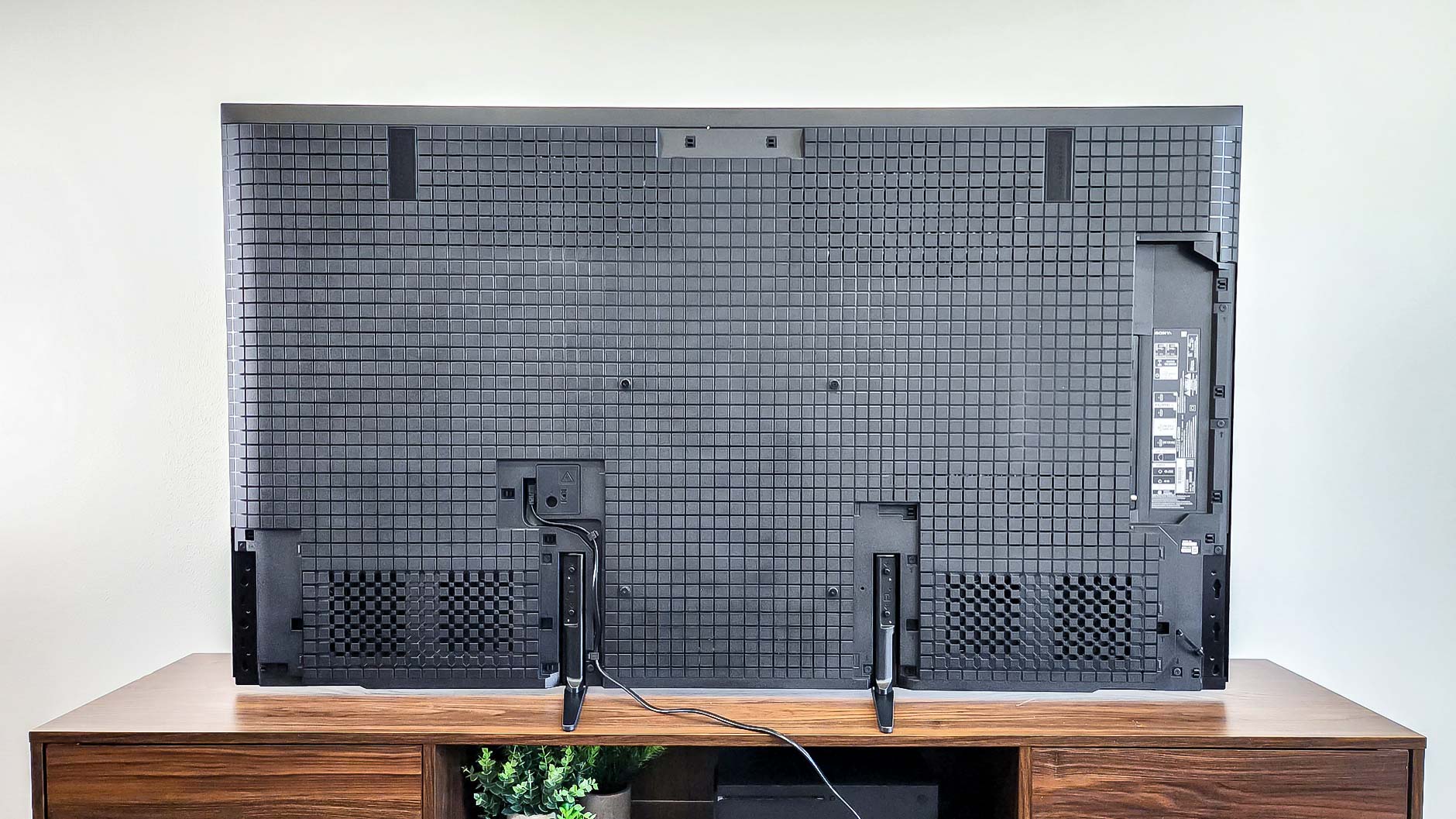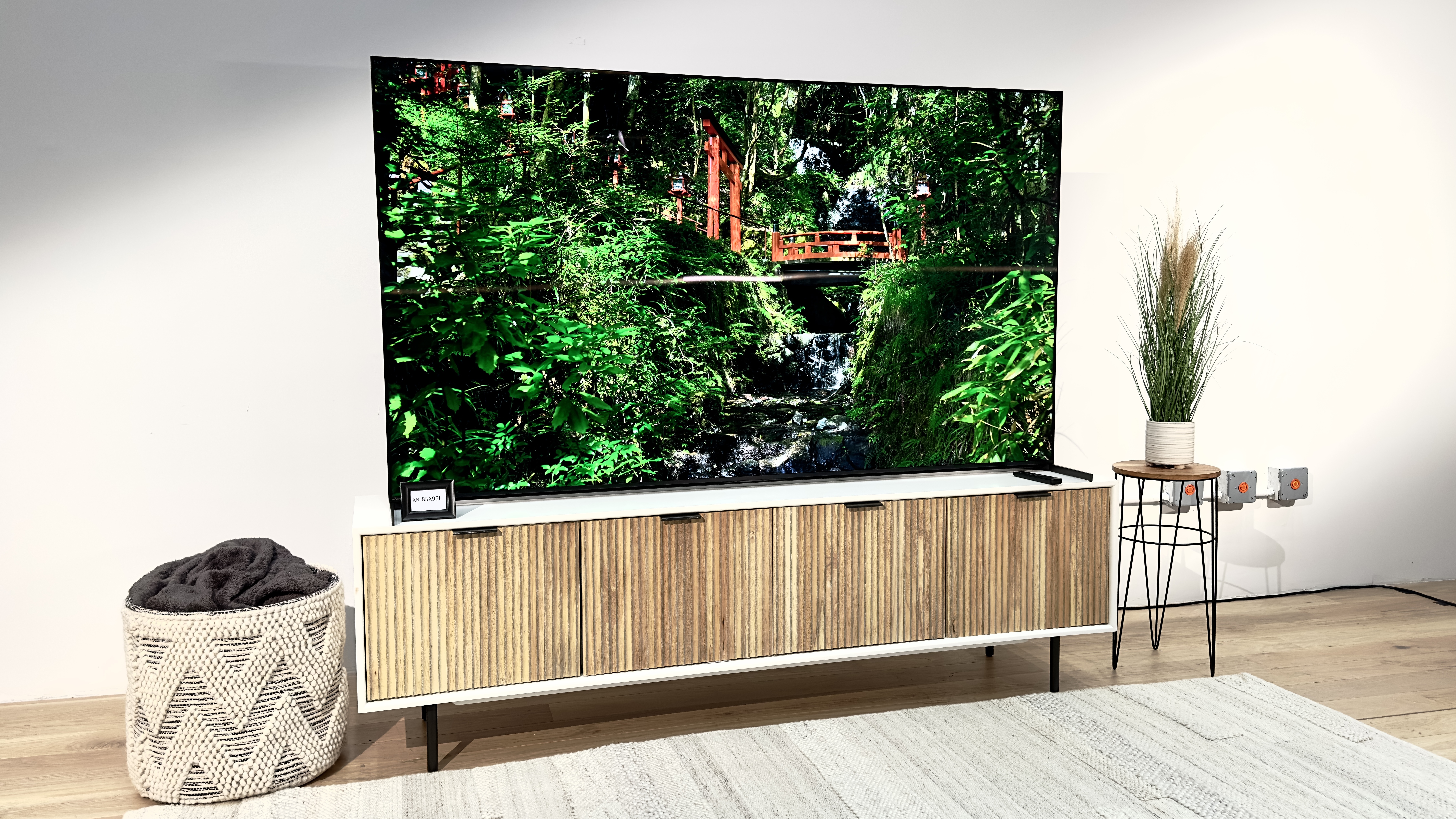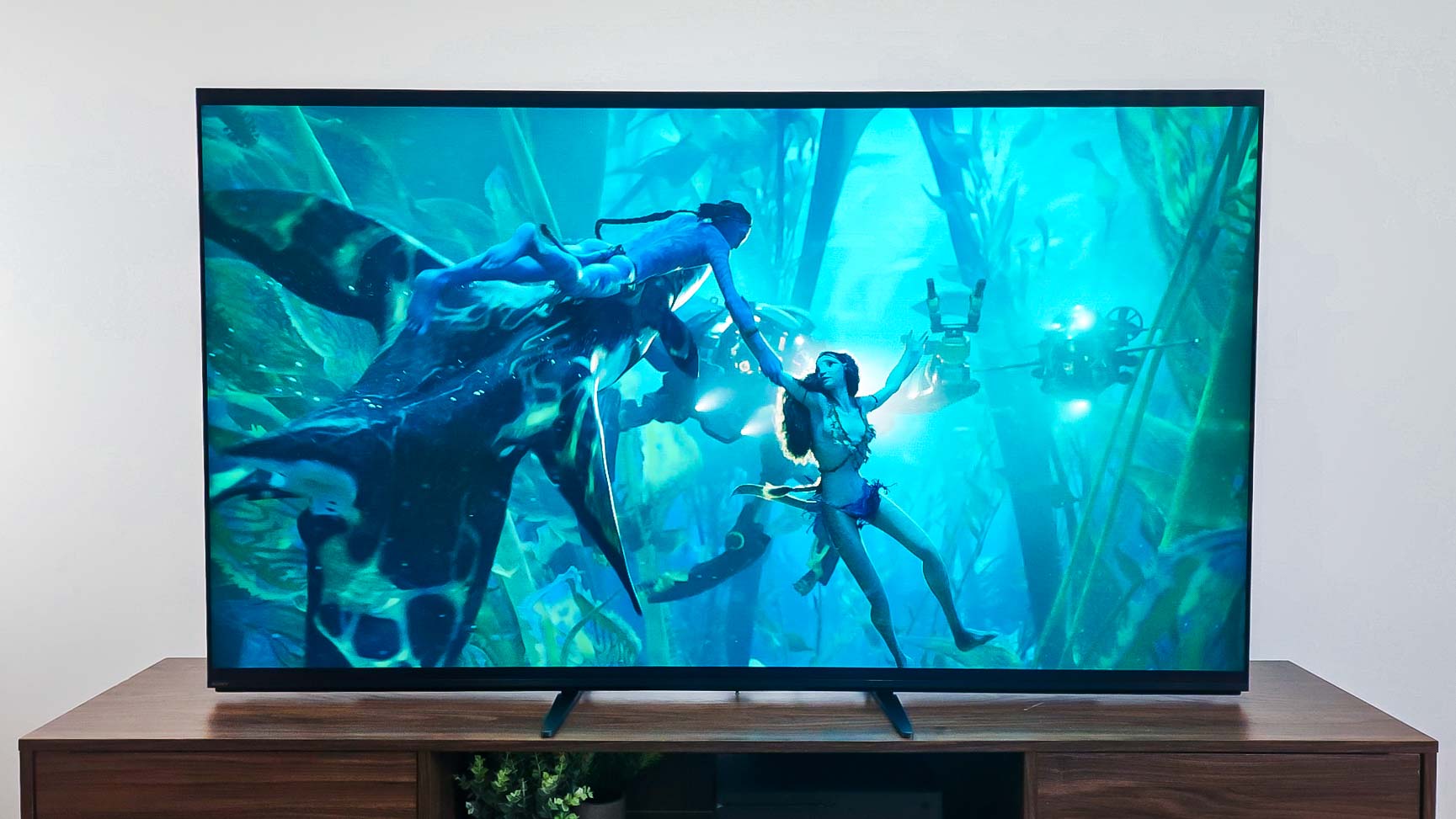Sony Bravia 9 vs Sony X95L: Which Mini-LED TV wins?
Two of Sony's most impressive QLEDs go head to head

When you blend the scintillating brightness and remarkable contrast control of a Mini-LED TV with the top-tier engineering and thoughtful design of Sony TV, good things happen. That's very much the case for both the brand-new Sony Bravia 9 that's just rolling out to stores now, as well as the Sony X95L, from 2023, that's still kicking around in stores.
They're both great TVs, surely, but before you allow decision paralysis to set in, I've got reassuring news: This is going to be a pretty straightforward decision for the vast majority of folks trying to pick between Sony's most recent Mini-LED flagships.
In fact, if you're not planning on bringing home a room-dominating, 85-inch TV, I'd say the decision has more or less already been made for you.
Sony Bravia 9 vs Sony X95L: Specs compared
| Row 0 - Cell 0 | Sony Bravia 9 | Sony X95L |
| Sizes | 65", 75", 85" | 85" |
| Ports | 2x HDMI 2.1, 2x HDMI 2.0 | 2x HDMI 2.1, 2x HDMI 2.0 |
| Resolution | 3,840 x 2,160 | 3,840 x 2,160 |
| HDR | HDR10, HLG, Dolby Vision | HDR10, HLG, Dolby Vision |
| Smart TV software | Google TV | Google TV |
| ATSC 3.0 support? | Yes | Yes |
| Processor | Cognitive Processor XR | XR Processor |
| Price for a 65-inch screen | $2,999.99 | n/a |
Sony Bravia 9 vs Sony X95L: Design
Each of these TVs features a restrained, thoughtful design. Aesthetically speaking, they'll fit nicely into most living spaces, and when it comes to physically fitting into a space, they each offer some flexibility.

Both models arrive with a pair of metal, T-shaped feet that connect to the bottom of the panel in several different configurations. The widest configuration will have the TVs' feet straddling the corners of the panel. It's my favorite look of the various options, but it will require a media console that's wider than the TV itself. This is especially tricky with the 75- and 85-inch Bravia 9, and of course, with the sole, 85-inch X95L.
There's also a stand configuration that pulls the feet in closer to the panel's center — perfect for folks with narrower media consoles. If you have a soundbar, the feet of each TV can be flipped for extra clearance. Few TVs offer this amount of build versatility.

However, given the X95L's restrictive lineup, the all-new Bravia 9 is walking away with this category. Most people's homes aren't cut out for 85-inch TVs.
Winner: Sony Bravia 9
Sony Bravia 9 vs Sony X95L: Performance
These are Mini-LED TVs enhanced by quantum dots, so whichever you settle on, you can expect a bright, colorful picture with much better contrast than what you'd see on an average LED TV with full-array local dimming. Sony doesn't disclose dimming zone counts for any of its TVs, but even if you were to count and compare them yourself, you'd be missing out on the full story.
The Bravia 9's LEDs are more efficient than the X95L's, and more adept at doling out brightness where its most needed.
If you talk to anyone on Sony's engineering team, they'll tell you that the most exciting aspect of the Bravia 9 is the technology propelling its backlight system. Sony claims that, depending on the model size, the Bravia 9 offers as much as 325% more dimming zones than the X95L, but it's an improvement to the LED drivers that acts as the TV's secret sauce. The Bravia 9's LEDs are more efficient than the X95L's, and more adept at doling out brightness where its most needed.

Testing bears this out. The Bravia 9 is significantly brighter than its predecessor, scraping the 3,000-nit mark in HDR. And, while the X95L is no slouch in the local dimming department, the Bravia 9 might look more OLED-like than any LED TV I've ever seen. It's not perfect; you're bound to notice a light, bluish haze around subtitles, title cards, and particularly bright objects. As with all Mini-LED TVs, the effect is more pronounced during off-axis viewing. But all told, the Bravia 9 is a significant step up from the X95L as it relates to peak brightness and local dimming.
Sony's picture processing receives widespread acclaim for good reason. No matter which model you spring for, you can hang your hat on clean upscaling and smooth motion handling. The X95L and Bravia 9 both deliver excellent color volume and expert-level calibration right out of the box.
These are among the most impressive-looking Mini-LED TVs money can buy, but the Bravia 9's improved backlight puts it at a distinct advantage.
Winner: Sony Bravia 9
Sony Bravia 9 vs Sony X95L: Outlook
Other than size availability and picture quality, the Bravia 9 and X95L overlap in almost every other regard. They each offer just two HDMI 2.1 inputs (out of four total), along with ALLM, VRR, and support for 4K gaming at 120Hz. Dolby Vision and Dolby Atmos are accounted for on both models, and each is powered by Google TV, one of our favorite smart platforms.
Of course, if you're not in the market for an 85-inch TV, the differences between these two TVs is a moot point. The Bravia 9 isn't just the better performer, it's the only one you can buy in a 65- or 75-inch model.
Sign up to get the BEST of Tom's Guide direct to your inbox.
Get instant access to breaking news, the hottest reviews, great deals and helpful tips.

Michael Desjardin is a Senior Editor for TVs at Tom's Guide. He's been testing and tinkering with TVs professionally for over a decade, previously for Reviewed and USA Today. Michael graduated from Emerson College where he studied media production and screenwriting. He loves cooking, zoning out to ambient music, and getting way too invested in the Red Sox. He considers himself living proof that TV doesn't necessarily rot your brain.
